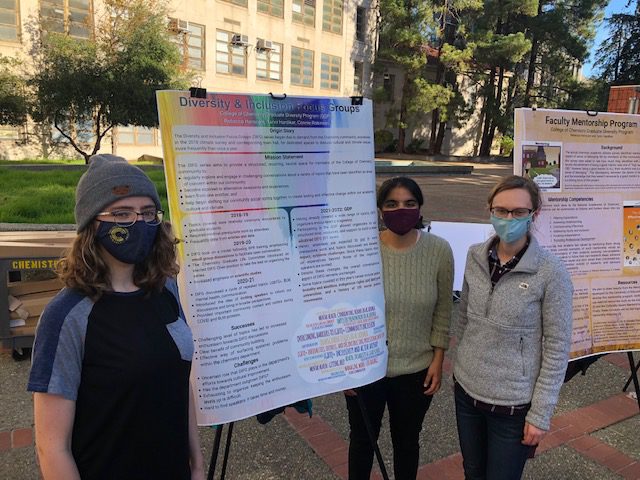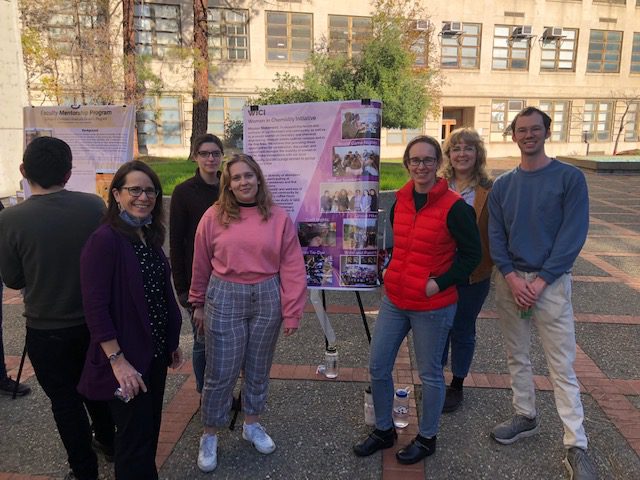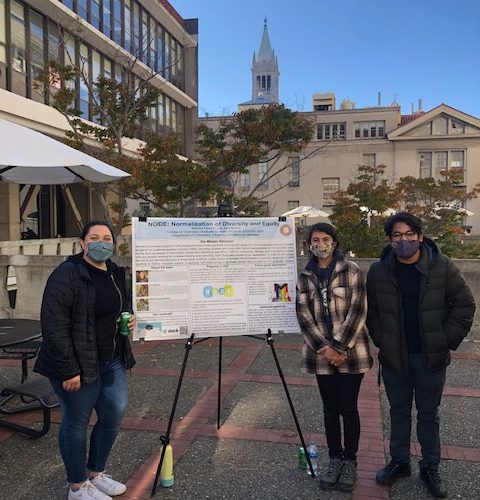While graduate students in the College of Chemistry have long been leading DEI efforts and initiatives to improve the unit’s climate, a new program provides more support and compensation for their work.
Academic institutions have recently shifted significantly toward focusing on diversity, equity, and inclusion (DEI). Many departments and colleges at UC Berkeley have shown increased efforts and funding to improve the climate of their programs. In the last few years, the College of Chemistry has implemented various changes to demonstrate that they are engaging in discussions on how to improve the DEI efforts and create a more inclusive environment for students.
One main program that has been established is the College of Chemistry Graduate Diversity Program (CCGDP), which compensates graduate students for their work on DEI-related projects.
“The goal is to have the Graduate Diversity Program embedded within the DEI work of the College,” describes Brice Yates, the chief diversity, equity, and inclusion officer at the College of Chemistry.
New cohorts of students each year are encouraged to offer novel ideas on how to improve the graduate student environment. Included among the array of programs were several mentorship arrangements with undergraduate, graduate students, and professors; a math bootcamp for incoming graduate students; a transformative pedagogy course; the cDIBS annual Chemistry climate survey; and a department-wide informational brainstorming session.
In addition to monetarily supporting graduate students, the program aims to build knowledge in published works about DEI efforts to encourage discussion and engagement on these types of changes.
The CCGD program is organized by Anne Baranger, a professor in the College of Chemistry and the associate dean for diversity, equity, and inclusion, alongside Yates. The end of the first year of the program was wrapped up in December 2021 with a poster session to highlight the efforts of the groups supported by the program.
The program launched in January 2021. After submitting short proposals, 11 groups were approved to join the new project. These 29 graduate students worked on a variety of projects with a wide range of starting points.
One new program that started with the CCGDP is a peer mentorship program called Normalizing Opportunities in Diversity and Equity (NODE). The intention behind NODE was to create more community amongst current and incoming underrepresented minority (URM) students and to make graduate school more accessible to prospective graduate students. So far, the program has 16 current URM-identifying graduate students with goals to continue to expand with the incoming classes.
The CCGDP was structured around biweekly meetings with a collection of discussion topics, including how to create assessments to measure success and improve each group’s goals based on challenges facing each program. In addition, each team was matched to a faculty member to gain input and extra support. The whole College was invited to the concluding poster session, where many groups were able to discuss their progress over this past year and upcoming goals for their initiatives.
When students were asked in a survey why they participated, answers included wanting to “improve the academic climate of the department and build healthier communities for graduate students” and institutionalize these programs to continue after the organizing students have graduated.
Students gave feedback at the end of the first semester on the efficacy of the biweekly meetings with Yates and Baranger. While many students greatly appreciated the support from the CCGDP this year, some students expressed areas of concern. For example, students described a desire for the program to be modified to include more collaboration and discussion between peers to further engage everyone in discussions surrounding their initiatives and overlapping goals in the department. In response to this feedback, guest speakers were added to some of the sessions and a focus on research discussions related to DEI were added to the agenda in the fall.
Although this program did not result in major changes across the College in just one year, one survey participant noted that has “been good to have structure and resources from CCGDP, and that has helped progress overall” on their individual initiatives. One student agreed, saying, “I don’t know what the direct impact of the program has been [on the whole college], but it has certainly impacted students and motivated them.”
As the CCGDP progresses into its second year, the goal is to expand DEI work within the College and continue to support graduate students leading these changes. With many of the DEI efforts and initiatives led by graduate students, Yates says, “the Graduate Diversity Program is a wonderful opportunity for graduate students to build upon their passion of DEI and provides the opportunity for the students to receive additional support from the College.”
While many students are eager to see more immediate changes within the College of Chemistry, DEI work done with the support of the CCGDP is an impressive start towards building a more equitable, inclusive, and diverse community of exceptional scientists.


